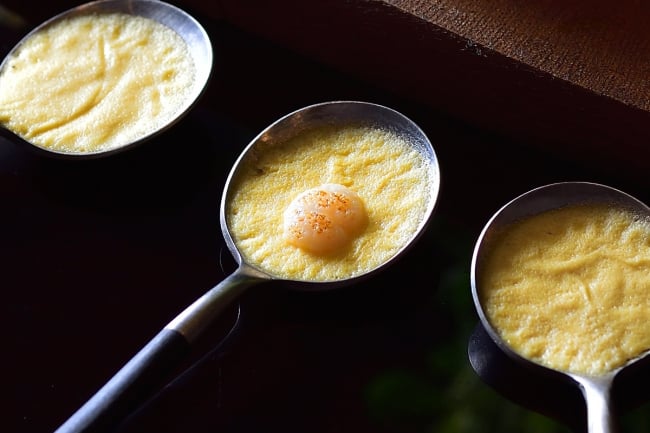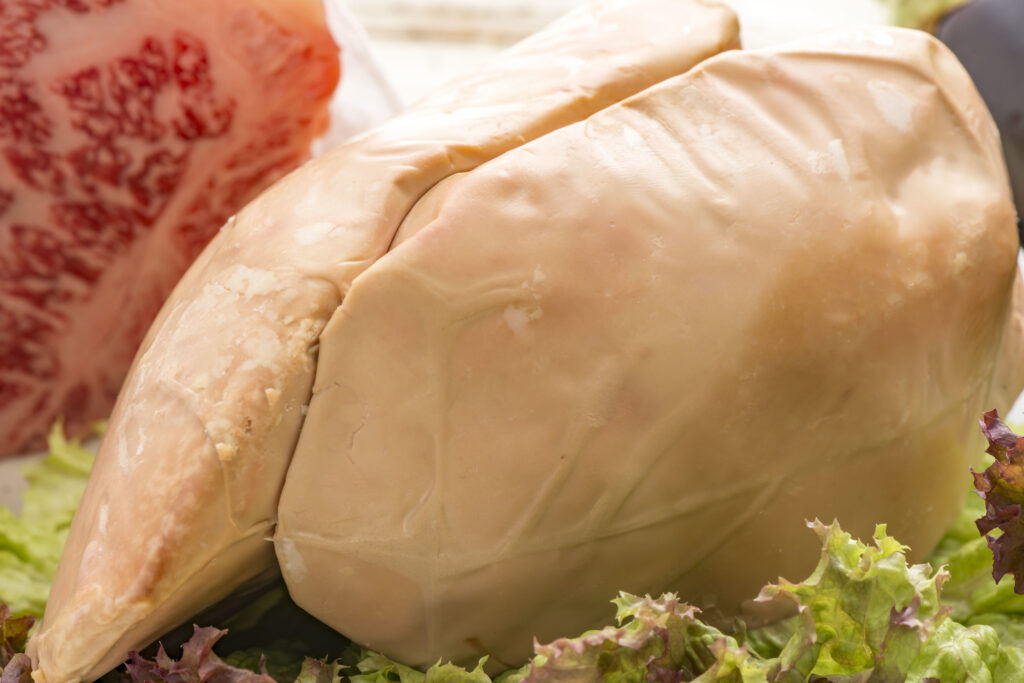
Cultured meat development is progressing across the globe.
Why is cultured meat gaining much attention?
The birth of cultured foie gras
Here are four reasons why cultured meat is gaining global interest.
- To cope with increasing food production due to the global population growth.
- To control greenhouse gas emissions of methane that stimulates global warming, one of the most severe environmental problems.
- Even when it comes to the hygiene aspect, cultured meat ensures a more secure environment.
- Ethical as the process doesn’t take animal lives.
And among the many food tech companies, the Japanese company IntegriCulture Inc. is the first in the world to succeed in producing edible cultured foie gras.

Until now, cultured meat has been produced basically with culture mediums for laboratory use. This laboratory culture medium is not a foodstuff, so the cultivated goods are not food products either. In 2019, IntegriCulture created a unique culture solution composed entirely of food to make edible cultured foie gras grown with the food culture solution.
According to the chef who tried it, “It’s good indeed, with a good balance of richness and sweetness. Not too oily, but a little goes a long way in your mouth. The sweetness spreads out softly and fluffily, a pure and rich foie. I was impressed by its delicacy yet still has a strong sensation. I would recommend it without any sauce and only with a pinch of salt.”.
Is cultured foie gras halal
Foie Gras (fatty liver in French) is a French speciality food made of duck or goose liver. For meat to be halal (permissible), certain animals must be slaughtered according to Islamic law. Islamic slaughtering procedures has two requirements:
- Animals must be free from stress or discomfort before slaughtering
- Animals must not be mutilated, deformed or diseased when ready for slaughter
In general foie gras production, ducks and geese are force-fed with massive amounts of grain and fat into their stomachs using a tube stuck down their throats several times each day. This makes the food haram (not permissible) as it does not meet Islamic law.
 Image is for illustration purposes only
Image is for illustration purposes only
But for cultured meat (a.k.a cultivated, lab-grown or cell-based meat), the process involves growing meat from animal cells. This eliminates the unethical treatment of animals raised for food as they—in this case, ducks and geese–are not abused or experience any discomfort.
Although it is now free of animal abuse, we still have to consider the animal source cell, culture medium and production process.
Based on the Quran scripture and interpretation by Islamic jurists, cultured meat is halal if the cells used are from animals slaughtered according to Islamic law, no impure blood mixed in the production process, and no animal-based growth promoters used.
Of course, cultured meat should be safe for human health, which is also important in the halalan toyyiban concept.
*Halalan toyyiban concept refers to halal food or halal product should guarantee and assure they are in great condition and safe for people to use, while adhering to Islamic law (Sharia)
Cultured foie gras is promising as it is more ethical and cruelty-free, which could give a possibility for a halal version of this fine food in the future.
Future of edible cultured foie gras
In developing cultured meat, foie gras has relatively low technical hurdles because it can be made in paste form, unlike tissues with blood vessels and muscle fibres. Also, it has the economic advantage of being sold as a high-end product.
A spoonful of liver cell tissue from a goose, duck or chicken, when grown over a month in a culture system called ‘CulNet’, can grow to several kilograms. It is estimated that the price will be around JPY 30,000 (=USD 262.74) per 100g at the time of test marketing.
The company is carrying out further R&D and aims to have the product on the market by 2023.
Reference:
・Cultured Meat in Islamic Perspective / National Library of Medicine
・Cultured Meat As A New Culture In Muslim Community (by Norkumala binti Awang) / Institute of Islamic Understanding Malaysia

